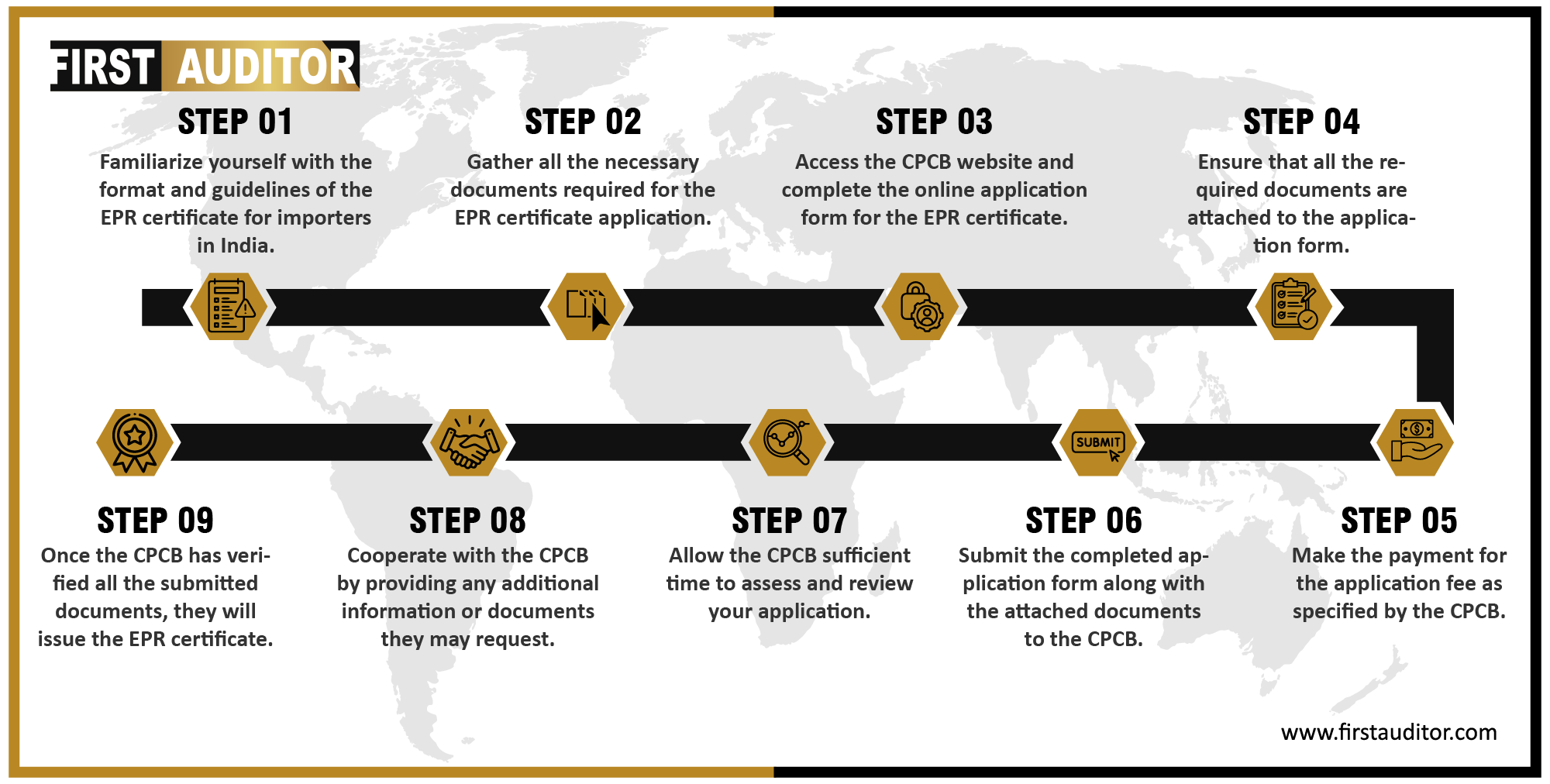Extended Producer Responsibility (abbreviated as EPR) was first proposed by the Indian Central Pollution Control Board. Producers and importers of battery trash are required by the Battery trash Management (BWM) standards to register their EPRs. Holding makers, manufacturers, and importers accountable for the amount of waste produced during a product's shelf life is the aim of EPR.
As per the 2022 Battery Waste Management Rules, individuals or organizations involved in battery production or manufacturing are required to register online with the Central Pollution Control Board (CPCB) to obtain an EPR registration certificate for managing battery waste.
Compliance with regulatory standards and proper management of battery waste require the submission of several documents for EPR Battery Waste Registration.
The first step in the process of EPR for Battery Waste Registration is for companies to register with the appropriate regulatory authorities to establish their responsibility under Extended Producer Responsibility (EPR) guidelines.
During the registration process, companies are required to submit detailed information about the types and volumes of batteries they place on the market, ensuring transparency and accountability.
Once registered, companies must implement systems for collecting, transporting, and recycling their used batteries in an environmentally sound manner, in accordance with EPR guidelines.
Compliance with EPR for Battery Waste Registration also requires companies to keep meticulous records of battery collections, recycling methods, and disposal pathways, demonstrating their adherence to regulations and sustainability goals.
By following the process of EPR for Battery Waste Registration, companies contribute to the responsible management of battery waste and help minimize its environmental impact.
The formal registration process ensures that companies are aware of their responsibilities and obligations regarding battery waste, promoting compliance with regulations.
The implementation of collection, transportation, and recycling systems ensures that battery waste is handled in a manner that minimizes harm to the environment and human health.
The maintenance of detailed records allows for transparency and accountability, enabling regulatory authorities to monitor and enforce compliance with EPR guidelines.

EPR for battery waste registration is the process through which manufacturers, importers, and brand owners register with regulatory authorities to comply with Extended Producer Responsibility requirements for the collection, recycling, and proper disposal of used batteries.
All manufacturers, importers, and brand owners of batteries and battery-operated products are required to register for EPR for battery waste to fulfill their responsibilities under the regulatory framework.
Documents required for EPR registration typically include a copy of the company's registration, details of battery types and quantities, a waste management plan, and any other documentation specified by the regulatory authority.
To register for EPR for battery waste, companies should visit the official website of the regulatory authority, fill out the registration form, submit the required documents, and pay any applicable fees.
The registration fee for EPR for battery waste varies depending on the regulatory authority and the volume/type of batteries. Companies should check the official guidelines for the specific fee structure.
The registration process for EPR for battery waste can vary in duration, typically ranging from a few days to several weeks, depending on the completeness of the application and the efficiency of the regulatory authority.
Failure to register for EPR for battery waste can result in penalties, including fines, legal action, and restrictions on operations, depending on the regulatory authority’s enforcement policies.
Yes, EPR registrations for battery waste are typically valid for a specific period and must be renewed to ensure ongoing compliance with regulations.